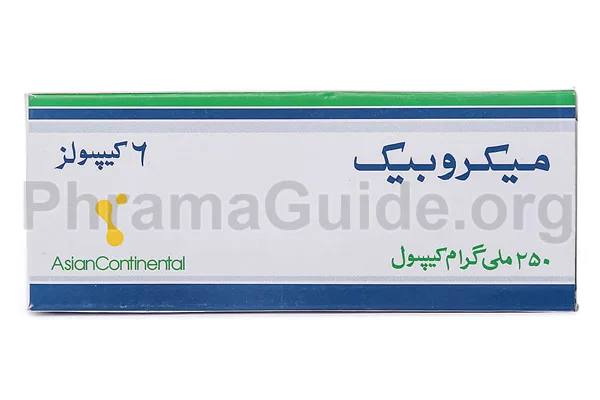Macrobac tablet is primarily used to treat a variety of bacterial infections. It belongs to a class of drugs called Macrolide Antibiotics. Following are some common uses of Macrobac Tablet:
- Respiratory Infections: Macrobac tablet is often used for respiratory tract infections such as bronchitis, pneumonia, and sinusitis.
- Ear and Throat Infections: Macrobac tablets can be used to treat infections of the ear (otitis media) and throat (pharyngitis and tonsillitis).
- Skin and Soft Tissue Infections: Macrobac tablets may be used for certain skin and soft tissue infections like cellulitis, impetigo, and erysipelas.
- Sexually Transmitted Infections: Macrobac tablet is effective against certain sexually transmitted infections (STIs) such as chlamydia and gonorrhea.
- Genital and Pelvic Inflammatory Diseases: Macrobac tablets may be used to treat infections of the female reproductive organs, including cervicitis and pelvic inflammatory disease (PID).
- Preventive Treatment: In some cases, Macrobac tablet is used to prevent certain infections in individuals who are at risk, such as those with a weakened immune system.
Off-label Uses of Macrobac Tablet
- Traveler’s Diarrhea: Macrobac tablets may be used off-label to treat traveler’s diarrhea caused by certain bacteria.
- Lyme Disease: Macrobac tablet has been used as an alternative treatment for early-stage Lyme disease, usually in combination with other antibiotics.
- Chronic Obstructive Pulmonary Disease (COPD): Macrobac tablets may be used in some cases as a maintenance therapy to reduce exacerbations and improve lung function in patients with COPD.
- Cystic Fibrosis: Macrobac tablet is also used as a long-term therapy to reduce pulmonary exacerbations and improve lung function in patients with cystic fibrosis.
- Asthma: In certain situations, Macrobac tablets may be used to manage asthma symptoms and reduce exacerbations, particularly in patients with certain types of severe asthma.
- Inflammatory Disorders: Macrobac tablet has been used in some autoimmune and inflammatory conditions, such as chronic rhinosinusitis, bronchiolitis obliterans syndrome, and diffuse panbronchiolitis.

What is Macrobac?
Macrobac is one of the leading brands of Azithromycin, manufactured and marketed by Asian Continental (Pvt) Ltd Pakistan.
Macrobac Alternatives : Other Similar Brands
Following are some alternative brands of Macrobac and their manufacturers.
- Azitma : Sami Pharmaceuticals, Pakistan.
- Azomax : Novartis, Pakistan.
- Zetro : Getz Pharmaceuticals, Pakistan.
- Zyto : High-Q Pharmaceuticals (Pvt) Ltd, Pakistan.
- Azotek : Saffron Pharmaceuticals, Pakistan.
- Zezot : Bosch Pharmaceuticals, Pakistan.
- Zithromax : Pfizer Pharmaceuticals.
- Atizor : Macter International.
- Exthro : Indus Pharmaceuticals, Pakistan.
- Azitral : Nova Med Pharmaceuticals, Pakistan.
- Rescue : Standpharm Pakistan (Pvt) Ltd.
Macrobac : Available Formulations and Strengths
Prsently, Macrobac is available in Tablets, Capsules, and Suspension Forms
Macrobac Tablets : 500mg strength
Macrobac Capsules : 250mg, and 500mg strengths
Macrobac Suspension : 200mg/5ml strength
Who Should Not Use Macrobac?
Macrobac contraindications include individuals who have had an allergic reaction or hypersensitivity to macrolide antibiotics such as erythromycin, as well as those with liver problems or impaired kidney function. People with a history of Long QT syndrome (a heart rhythm disorder), myasthenia gravis (a neuromuscular disorder), or cardiac arrhythmias should also avoid taking Macrobac. Additionally, pregnant women and nursing mothers should seek advice from their doctor before using this medication.
What is the Recommended Daily Dosage of Macrobac?
Generally speaking, it is recommended that adults take 500 mg per day for three days or 250 mg per day for five days.
For children between 6 months and 12 years old, the usual dose is 10-12 mg/kg once daily for 3-5 days depending on the severity of the infection; however, this may vary depending on age and weight so it’s important to follow instructions from your doctor carefully when giving this medication to children.
How Macrobac Works?
Macrobac works by inhibiting the growth of bacteria cells by preventing them from reproducing and repairing themselves. It does this by targeting proteins that are essential for bacterial growth and replication, thereby stopping bacteria from multiplying further thus clearing up infection more quickly than other antibiotics could do on their own.

Leave A Comment